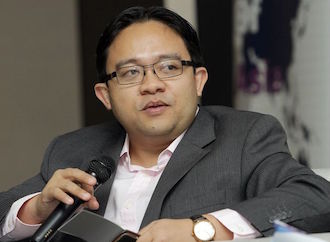PAS has always been conservative

Wan Saiful Wan Jan, The Star
WHEN it comes to political Islam, the Islamic Party of Malaysia (PAS) is without doubt the most successful political party in the country. In fact, PAS sits comfortably among the most important Islamist political parties regionally and globally.
The origin of PAS is rather convoluted but the official account today is it was founded on Nov 24, 1951, at a meeting of Malay scholars and Islamic associations in Butterworth. The meeting was actually the third Ulama Congress, which in turn has its origin in Umno’s political strategy.
Umno, under its first president Datuk Onn Jaafar, was getting worried about losing support from conservative Malay Muslims. It wanted to reposition itself so that conservative Malays would remain in its fold.
Hence, they sponsored the first Ulama Congress (Perjumpaan Alim Ulama Tanah Melayu) on Feb 20 to 22, 1950, followed by another one on Aug 23, 1951.
The purpose was to bring together conservative Muslim scholars to discuss steps that they needed to take in moving towards independence, under the banner of Umno.
When the Ulama Congress met again for the third time on Nov 24, 1951, the delegates agreed to the formation of Persatuan Islam Se-Malaya. This was the starting point for PAS.
The first president was Haji Ahmad Fuad, who simultaneously held the position of head of Umno’s Religious Affairs Bureau. Despite PAS already being formed, the linkage to Umno headquarters continued through him. In fact, PAS even allowed for dual membership at that time, and many were members of both Umno and PAS.
When he was first elected as president of PAS, Ahmad Fuad’s inaugural speech was entitled “Kita laksana sampah, kerana tidak bersatu” (We are like rubbish, because we are not united). He was calling for all Malays to unite under one banner, with the more conservative ones in PAS, but ultimately everyone would still be under Umno’s big umbrella.
Malay unity, therefore, is not at all new to PAS. That was their founding agenda.
Soon, Malay conservatism became stronger than the influence that any individual could exert on the party. When Ahmad Fuad tried to change the party so that it became less communal, the party fought back.
Ahmad Fuad wanted to bring PAS closer to the new, non-communal party formed by Datuk Onn, the Independence of Malaya Party (IMP). When Ahmad Fuad tabled this idea at a meeting on Sept 26, 1953, his idea was summarily rejected, leading to him leaving the party.
Clearly it was not easy for anyone, even their own founding president, to go against the conservative Malays within PAS. Right from the start, when they had to choose a political partner, PAS preferred Umno’s communalism over other options.
As the experience of their founding president shows, PAS does not hesitate to remove anyone attempting to bring the party away from Malay conservatism. And they will push aside anyone suggesting otherwise. That was the experience of their first president.
Things only changed a little bit when the Iranian revolution took place in 1979. Islamism in a more modern sense entered the party, and a group of religious scholars successfully took over the leadership.
Various structural changes were introduced, including ingraining the concept of kepimpinan ulama (leadership of the ulama), the formation of Majlis Syura Ulama (Ulamas Consultative Council), and the creation of the post of the Mursyidul Am (spiritual leader). Religious scholars were elevated during this era.
A more systematic mechanism for tarbiyah was also put into place. It is not easy to translate the word tarbiyah into English, but in practice it means a structured system to educate members about party discipline and party ideology.
I was a beneficiary of that system and until today I am grateful for the experience. As far as a Malaysian political party is concerned, I think PAS’ systematic tarbiyah is unmatched. During this era, and especially under the sixth president Datuk Haji Fadzil Muhammad Noor, PAS saw the entry of individuals with more progressive ideas in increasing numbers. Many quickly rose up the ranks to hold key positions at the federal level.
The progressives supported the conservatives and they championed the concept of leadership by ulama. They even played a pivotal role to solidify the ulamas’ grip on the party. And they went all out to attract support from non-Muslims and urbanites. The progressives argued that PAS had changed, and many believed them. That was a mistake.
In reality the majority of PAS’ membership is conservative and they have always remained the same. The changes made by the progressives only affected the top layer of the party. But when the conservatives decided that enough was enough, their strike was decisive. In 2015, the progressives were completely routed from all posts and the conservatives firmly took over.
PAS is now back to its original form – a Malay conservative party that champions Malay unity. That was why it was founded, and it was exactly what Umno’s first president Datuk Onn wanted it to be. In their Muktamar this week, we can expect that this will be formally confirmed.

